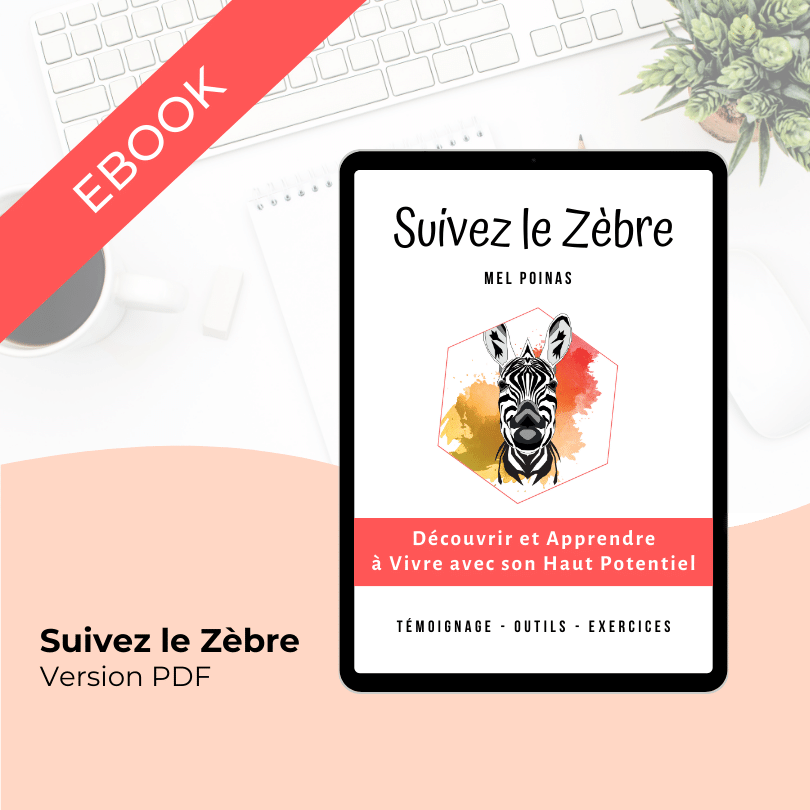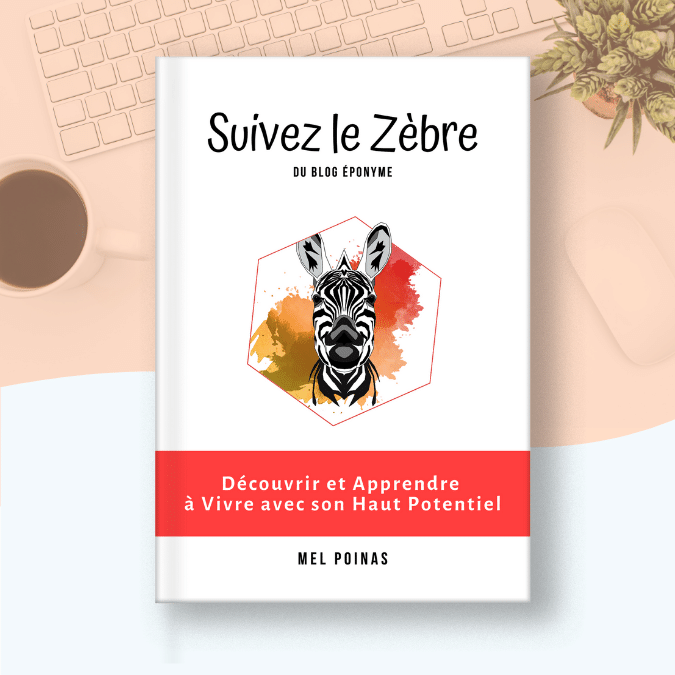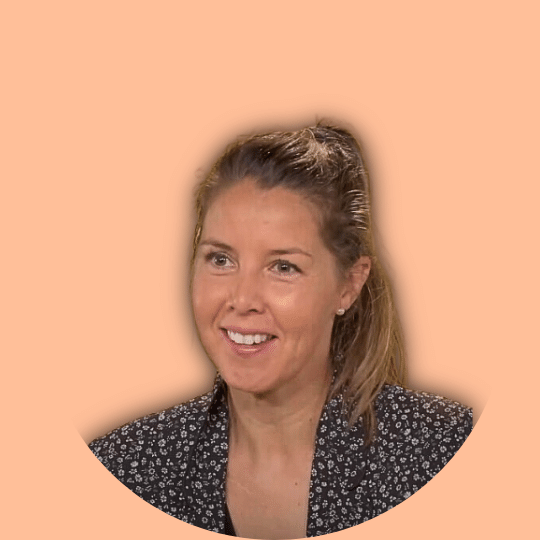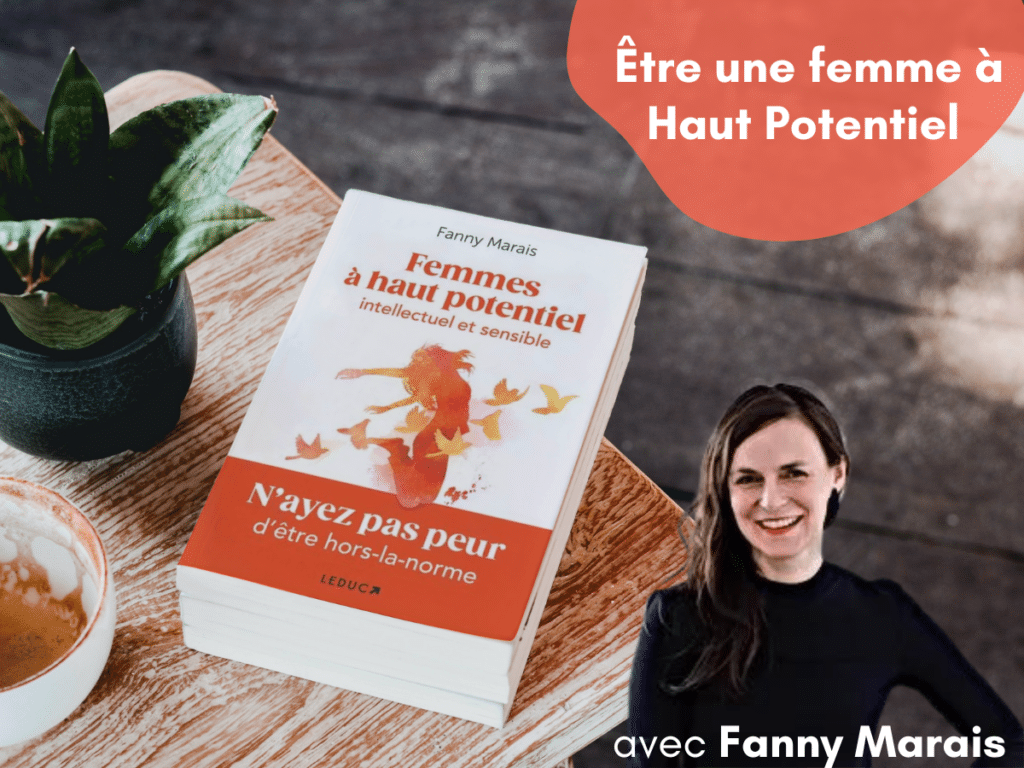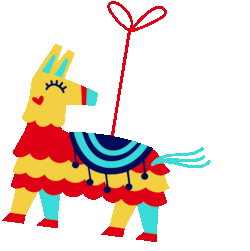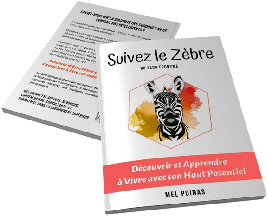Being a gifted person is already a challenge in French Society. Is being a gifted woman reinforces this feeling of being out of step?
Does being a gifted woman presents an additional challenge?
Do gifted women feel even more out of step?
What motivates us?
What solutions and advice can we put in place for living serenely as a gifted woman?
To help us answer these questions, Suivez le Zèbre is pleased to welcome Fanny Marais from Solution Coaching. Fanny has just released her latest book: Femmes à Haut Potentiel intellectuel et sensible.
Before questioning Fanny about the singularity of being a gifted woman, what are the characteristics of a gifted woman?
Characteristics of the gifted woman
A gifted woman is:
- A brain that never stops
- A powerful memory
- A hypersensitivity or high sensitivity
- Highly developed senses (hyperesthesia)
- A great empathy
- A divergent thinking (commonly called tree-like thinking)
- High standards and perfectionism
- Great creativity
- Great facility for analysis
- Highly developed curiosity
- Intuitive thinking
- Impostor syndrome
- Fear of failure
- A heightened feeling of being out of step
- Being a chameleon (social camouflage)
Fanny Marais, coach specialised in the accompaniment of Hypersensitive and Gifted women
A coach since 2018, Fanny Marais has trained in systemics and in coaching Gifted and Hypersensitive people. She was employed for 12 years in large French companies. She left her last job in 2017 and started in 2018 as a coach and trainer, then she published her first book in 2020.
A rather quick professional transition!
After having written Hypersensible, her first book published by Vuibert, Fanny signed the second one: Femmes à haut potentiel intellectuel et sensible, (meaning : Women with high intellectual potential and sensitivity, Don’t be afraid of being out of the norm) published by Leduc.
Is a gifted woman necessarily hypersensitive?
Hypersensitivity is often linked to giftedness, but it manifests itself differently in each individual.
Fanny: ‘What I often explain is that most of the time, there is a lot of hypersensitivity in gifted people. And it is often what leads them to seek help or encounter difficulties in their lives. Finally, ion the case of gifted people who are doing well, we will not see this hypersensitivity right away, or they will have very well tamed it. Others will have masked their emotions so well that their emotional self-awarenesswill be low. They will not be listening to themselves. All of this means that that this hypersensitivity will not emerge.
‘In a hypersensitive woman, you identify very quickly that she is feeling a lot of emotions and sensations, all with intensity.’
Femmes à haut potentiel intellectuel et sensible is a more intimate book about the choices of gifted women and the possible feeling of being out of step with the social codes.
Gifted women, more difficulties to fit in?
Social norms are very demanding, although women are becoming more and more liberated. Nevertheless, there are still many gifted (or non-gifted) people who cannot fit into these social norms.
Fanny: ‘I believe that these women do not fit into the mold very early on because they do not experience their relationship to the world in the same way. For them, it is like a second skin to have to question a whole bunch of things. With these gifted women,there is this visceral desire to understand.
To understand why certain rules are set up this way? Why is it necessary to get married, have children, buy a house? Is that what happiness is all about?’
Gifted women, rebel spirits?
Finally, are gifted women more rebellious than other women?
Fanny: ‘It is not necessarily a rebellious side, it is an attempt to discover things. Some gifted women decide to integrate these norms so as not feel this detachment, until the day it may break.
Others prefer to question themselves, to wonder, and this is where I encourage them to go all the way because if they stay halfway, they may still suffer from seeing that they are on the margins of the traditional path. This traditional path can lead to a feeling of confinement for these gifted women because it is the opposite of one of their values which is freedom, and freedom of mind above all. But, once the norm is accepted and validated, it is possible to slip into it.’
The gifted woman and her paradoxes
Every individual struggles with their own paradoxes, this is what makes the richness of a personality and also the interest of life, finding a form of inner peace in response to our internal conflicts. In the case of the gifted woman, the intrinsic paradoxes can be even more numerous and intense.
Fanny: ‘When I talk about these gifted women, I like to highlight their beautiful paradoxes: a strength of life mixed with great sensitivity, an audacity restrained by the gaze of others, a desire to assume to be out of line while constantly regretting not staying there…‘
Does this inability to fit into the norm for these gifted women, despite their desire to do so, make them more prone to existential and identity crises?
Fanny: ‘Yes, completely, but what is interesting is that this gifted woman is more capable of overcoming this crisis. She will draw on the many resources she has at her disposal, but also on the imaginative, emotional and intellectual stimulations that will allow her to find solutions and bounce back.‘
Despite this incredible resilience will this gifted woman always feel out of step?
Gifted woman, a feeling of being at odds
The many choices we make in our lives have an impact on who we are but also on our environment and those around us… When she makes choices considered out of step:
- Becoming an entrepreneur or business leader
- Not wanting children
- Not wanting to get married
- Living alone
- Juggling multiple professions
- Being a high-level athlete
- Pursuing a profession considered masculine
- Having homosexual, bisexual or polyamorous relationships
A woman can quickly feel out of step with the rest of society when she breaks the rules. This is especially true if the woman making this choice is also gifted. Her values and vision of the world will affirm and reinforce these choices.
How can we help her to assume these choices without her feeling that she is in a permanent struggle? At work? In love? In family? In everyday life?
‘This theme was suggested to me by Leduc, but I had had it in mind for a long time. I would also have loved to write about men and Giftedness and Hypersensitivity for men can be just as complex to live with at times,maybe it will be the next book! When you’re a woman you experience things differently on a biological level and that also explains this feeling of confusion or discrepancy that sometimes leads to misunderstanding.’
Gifted women: their motivations
From childhood, these women feel different. ‘‘Some choose to toe the line, to pass under the radar, to soften this feeling. But one day, it can catch up with them. Many people have a tendency to please others and do things right to make their loved ones proud.‘
Especially in the case of hypersensitive and gifted women, there is a real concern about what others will think. There is a need to feel loved. ‘These unconscious, guilt-inducing behaviours are barriers that we develop depending on our education, our family, and societal environment. They will haunt us until we become aware of them. From then on, we can ask ourselves: when I don’t dare to say no so as not to displease, what do I gain from it?’
Often people who say ‘yes’ think they are winning the love of others, whereas sometimes by saying no, we gain the respect of others.
Fanny Marais
Of course, depending on one’s upbringing and background, the need to please can be more or less developed in different people. The women I talk about in this book have progressively developed the ‘be strong’ rather than the ‘please others’.
These gifted and hypersensitive women choose to fully assume their differences in their perception of life, of the world, of others, to magnify them.
Gifted women: the question of motherhood
Many women do not wish to have children. It is their choice, it is their own business, yet today, in the eyes of society, a woman is still and always meant to be a mother.
‘I had many questions in coaching from gifted women, especially on the issue of not having children.. did some research, cross-referenced different social science sources and contacted Astrid Hurault de Ligny, who has since written Le regret maternel (Maternal Regret) in order to better understand it.
I identified several possibilities that explains this choice of non-motherhood among gifted or hypersensitive women:
– The relationship with the body, some do not want it to change and/or to feel dispossessed of their own body.
– Hypersensitivity, highly sensitive people are always overstimulated by their environment. The need to rest is vital. The need to rest is vital.
– Hypersensoriality (or hyperesthesia), the first years of an infant’s life can be a challenge!
– The fear of not being intellectually nourished during the child’s early months of development.
– The transgenerational aspect, some women do not want to restart the eternal cycle of motherhood.
Are we here to perpetuate something all the time, or are we here to offer a different transmission, not just through the child?
Fanny Marais
A major obstacle to the desire for motherhood is also the fear of oneself.
Gifted women, overcoming self-fear
If a gifted woman accumulates too many demands and does not have time to decompress, it can quickly become very complicated to manage. She sometimes ends up exploding, which can lead to impulsivity, annoyance and the time bomb effect can be scary when you become responsible for another human being, especially a baby.
If you’re experiencing these doubts, we recommend reading Mel Poinas’ article on pets and how her relationship with her dog influenced her desire to be a mother.
In any case, it is better to tame all these emotions and sensations rather than mask them to avoid the time bomb effect.
Fanny Marais
If you find yourself in the time bomb effect, like Fanny we advise you to learn to tame your emotions. By understanding your functioning, you already have the end of the ball of wool to untangle. Don’t worry, when you’re gifted, managing emotions is often a real puzzle. And Zoé, the heroine of HPI, Une vie haute au couleur (Comic book HIP, A colourful life) is not going to say otherwise.
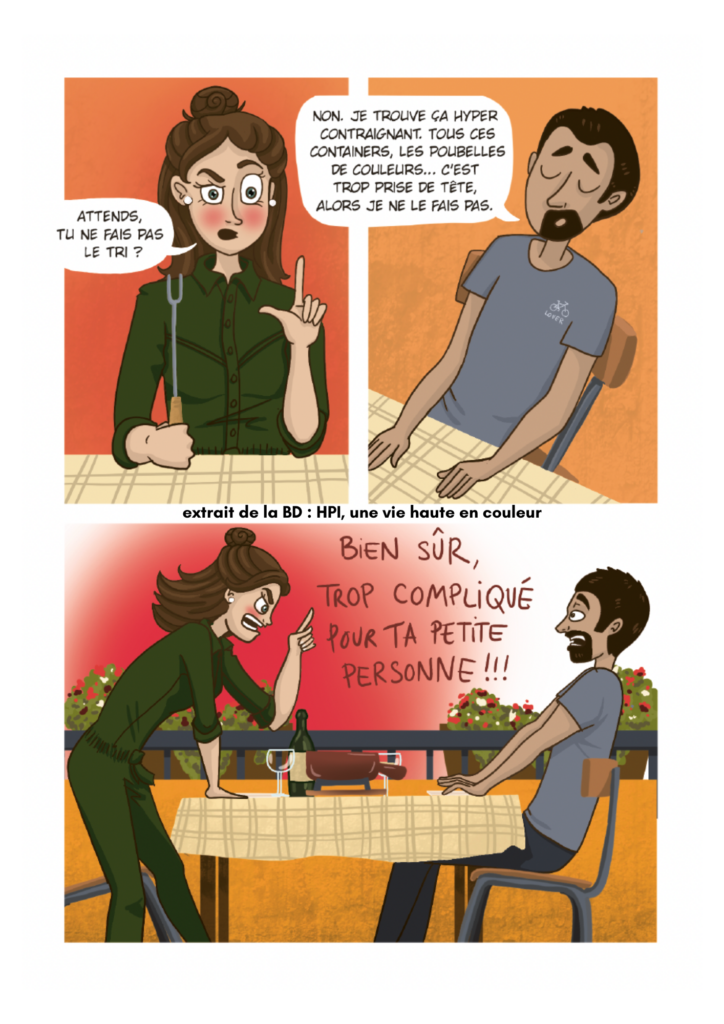
If you are looking for advice on how to better manage the time bomb effect, reading the book Suivez le Zèbre can help you, especially the last chapter entitled ‘Survival guide’, which is very effective in learning how to manage your time, your emotions, yourself and your relationship with others.
If you ever wish to be accompanied, CBT (cognitive behavioural therapy) carried out with a psychologist is a precious help along with coaching.
An aid in our own identity quest and choices
The quest for identity is unique to each person, and everyone can, at some point, question their own identity. At Suivez le Zèbre, we know that discovering one’s Giftedness is a real upheaval. It calls into question everything we thought we knew about ourselves and acts almost as a rebirth.
Despite doubts, it is often a great relief and an opening to finally find one’s place.
When we are identified as HPI, we can finally allow ourselves to be ourselves and learn to love ourselves in our entirety!
Mel Poinas
For Fanny, For Fanny, ‘the goal is to define what is important to us, and to assert our choices according to what we have defined as being key points of development and fulfilment for ourselves. This is also why the book ends with a carte blanche by Fabrice Micheau, who talks about this question of identity and autonomy, because I believe that this is the key to fulfilment.
Dabrowski’s theory of positive disintegration* is based on the same principle: when I come to a point in my life where I don’t feel good, do I stay there or do I take advantage of it to reflect on how I could transform myself?’
*Dabrowski’s theory of positive disintegration
Free gifted women of guilt (and all women!)
Femmes à Haut Potentiel Intellectuel et Sensible (Women with High Intellectual Potential and Sensitivity) is a book that reassures and in which we feel understood and listened to. It is also a book that democratises Giftedness for women.
In this book, the main aim is to free of guilt women who feel on the left out, or even on the fringes of society, in relation to personal life choices or career choices they have made. Once we stop blaming ourselves for making these choices, we live them much better and fully assume them. This is what I try to convey in this second book.
Fanny Marais
Why read Femmes à Haut Potentiel Intellectuel et Sensible by Fanny Marais
To help gifted women live without feeling the need to justify themselves or seek validation, it is essential that they feel legitimate. The discovery of one’s own giftedness is part of this process.
At Suivez le Zèbre, we loved Fanny’s book! It really helps women in their quest for identity and acceptance of their choices. It’s a reassuring, guilt-free book that is good for mentality. It’s truly accessible to everyone.
‘Some men have enjoyed reading the book to better understand what’s going on with the women who is Gifted. It has even resonated with some of them, especially as the notion of barriers between genders evolves today.
In gifted men, there is often a developed feminine side, and in gifted women, it’s their masculine side that can come out. There can therefore be an interesting cross-reading.’
Thank you, Fanny, for your time and your answers! We’re delighted to learn a little more about the specifics of gifted women and your book.
We end this article with a quote from Suivez le Zèbre that we love!
Saying no to something is saying yes to another thing, and especially to oneself!
Mel Poinas, Book Suivez le Zèbre
To go further, you can read
- What is being Gifted?
- The best books about High Learning Potential
- Giftedness : 20 characteristics of complex and laminar profiles
- How to take the WAIS 4 test?
- How to tell others we are gifted?

